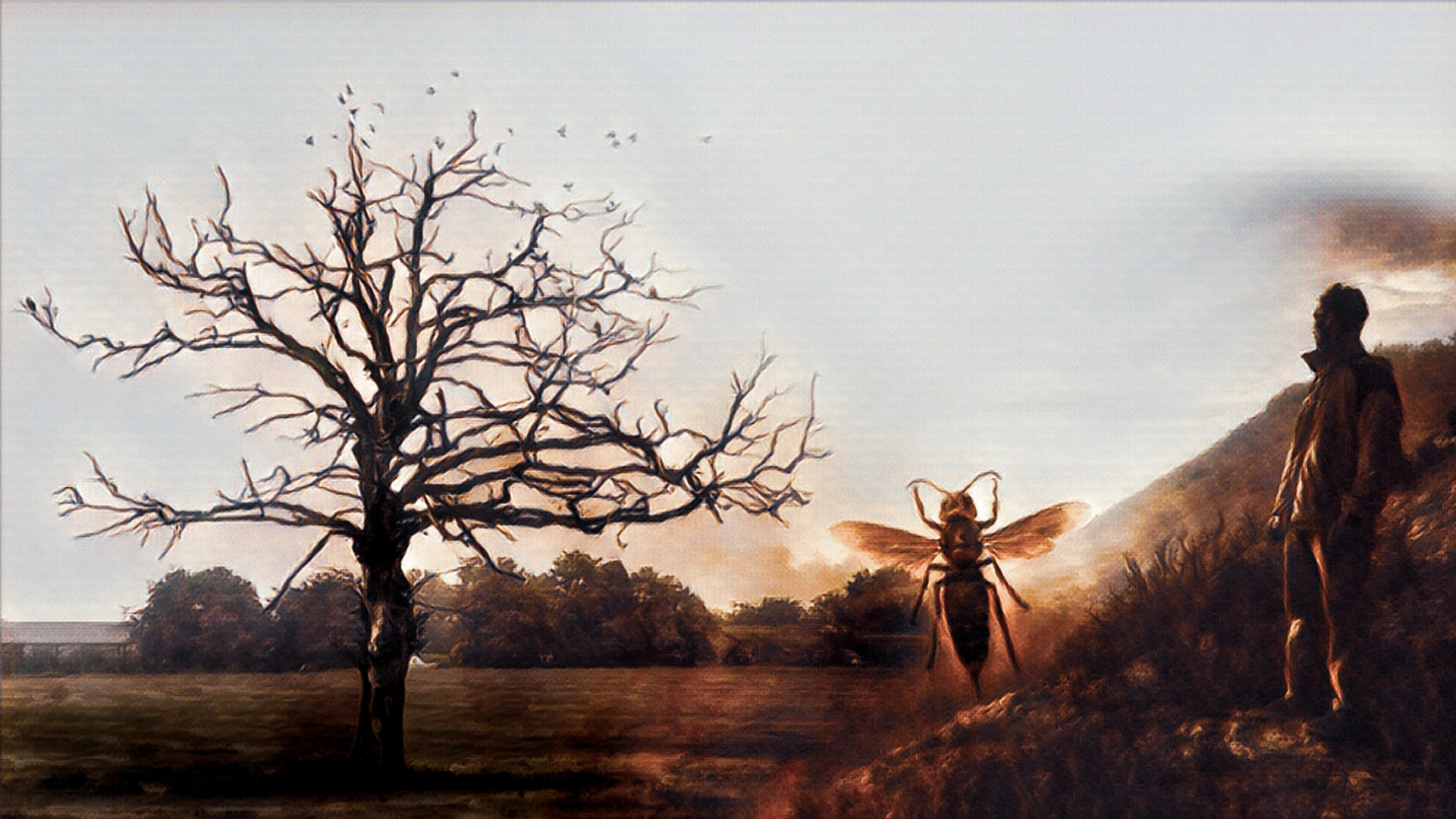Death sucks life out of people and joy out of their loved ones. It’s like a murder hornet but worse, for it leaves its stinger embedded so deep it throbs every time you bump it.
It slapped me forcefully at age 18, over and over and over again.
- Sweet little Casey, 16, a friend from Fellowship of Christian Athletes, died of cancer after two years of battle, balding, and so much prayer.
- Clever Lindsey, 18, my study mate, was hit by a semi and then another car while running from her stalled vehicle on the interstate.
- Friendly Jason, 18, a high school tennis teammate, overdosed.
- And the kind, cuddly, amazing cook named Francis Worthington—my own Gra’ma—lay in a pool of her own blood in her own home, beaten to death and then shamefully violated during a break-in on New Year’s Eve.
After the shocks of that year, my grief and confusion ebbed and morphed through numerous unrhythmic cycles. Now, 25 years later, my predominant image of Gra’ma and those young friends is no longer violent and sharp; it’s of them passively rotting in their graves—skin, muscles, and organs long since eaten by the ground.
This is grim and uncomfortable, I know, yet it’s true. As the last enemy, death sucks and stings long after its first strike.
Ancient Mourning and Scoffing
Believers have always wrestled with these issues. When Jesus told mourners to open Lazarus’s tomb, Martha resisted: “Lord, by this time there will be an odor, for he has been dead four days” (John 11:39). It was as if her realistic, macabre impulse throbbed back: “You can’t do that! I know you could’ve stopped his death before. I’ve even seen you raise a just-dead body back to life. But my brother is now rotting. It’s over.”
As the last enemy, death sucks and stings long after its first strike.
Later, Jesus’s own resurrection on the third day relieved his disciples of many things—sin, shame, guilt, fear, despair. Not least, though, his lack of decay shouted that God had not abandoned his body among the corpses (see Acts 2:27; 13:35).
But what about dead bodies that do decay? Has God abandoned them? Is there hope for them?
Some years later, significant disagreements festered in the Corinthian church about the whole idea of bodily resurrection. Some claimed, “The resurrection of corpses doesn’t exist” (see 1 Cor. 15:12). Paul easily disproved this: Jesus was raised, so resurrection exists (15:13–34).
But the objection narrowed and seemingly got tougher in verse 35: “But how are they raised? With what sort of body do they come?” Because for some, unlike Jesus at his resurrection, all that’s left is bones. No body. Perhaps nothing at all. So in what sort of body will they come if there’s no body to raise?
Hope with a Boundary
A few years ago, a Norwegian scholar named Dag Endsjø drew attention to a particularly gruesome Greek story. The Peloponnese peninsula, where Corinth is located, is named after Pelops—a prince whose father, the Lydian king Tantalus, had dismembered his son and tried to feed his body parts to the Olympian gods.
Fortunately for Pelops, the gods spotted the ploy, gathered his body parts back into the cauldron, and resurrected him.
Unfortunately for Pelops, Demeter, the goddess of agriculture, dipped into her stew a bit early and had already eaten his shoulder. When Pelops rose reassembled from the cauldron, he was still missing the shoulder.
Fortunately for Pelops, the gods gave him an ivory prosthesis. From then on, he looked pretty cool riding his chariot triumphantly, shoulder gleaming.
Unfortunately for Pelops, even that impressive gaggle of gods was powerless to recreate even one body part when it was gone. There was a clear boundary to the hope they could offer.
Some things for the Greeks were just too much to contemplate, including the devouring, annihilation, corrosion, decay, and rotting away of the body. But that’s precisely what death does the longer Christ waits to return. And that’s precisely where my Gra’ma, Lindsey, Casey, Jason, and so many others fit—in rot.
Creator Who Resurrects
In what kind of body do our loved ones in Christ come if their bodies are rotted away to nothing (1 Cor. 15:35)? Well, do we not know that our God is a Creator? He designed and gave diverse bodies, fleshes, and glories to seeds and their plants, to humans, animals, birds, and fish, and to sun, moon, and stars—all “just as he desired” (15:36–41). Can he not do it again? This is what our God does! He said it, and it was so. He will say it, and so it will be.
Do we not know that our God is a Creator? . . . Can he not do it again?
Where exactly is your sting, Death? Yes, we still feel it acutely. Pain is not yet over. The bodies of family and friends murdered and abused, crushed by cars, overdosed in foolishness, ravaged by cancer—all having physically festered in the dust of death. It hurts deeply.
And yet our God has already sucked the power out of your fangs, Death, for all who are being recreated in the last Adam, Jesus Christ. We all—including Casey, Lindsey, Jason, and Gra’ma—will be made like the last Adam, King Jesus. We’ll enjoy glory, power, honor, incorruptibility, and immortality beyond what Adam and Eve ever enjoyed in the garden (1 Cor. 15:43–49, 50–58). This Jesus holds your keys, Death, in his resurrected right hand of creative power. And he alone can open the door.
